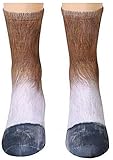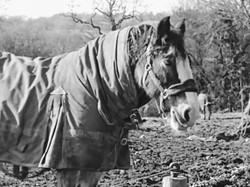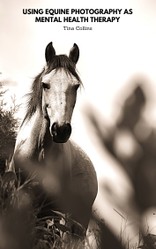What I wanted to learn is whether there were specific traits that were common or typical to all personality disorders that could benefit from equine assisted therapy.
The DSM-5 (APA, 2013) reports that the key traits of personality disorders are:
- Rigid, extreme, and distorted thinking patterns (thoughts)
- Problematic emotional response patterns (feelings)
- Impulse control problems (behaviour)
- Significant interpersonal problems (behaviour)
There are plenty of good studies indicating equine assisted therapy can be an effective treatment for anxiety-based disorders such as PTSD. Could there be some benefit to those who suffer from personality disorders, too?
Let’s break it down.
Rigid, extreme, and distorted thinking patterns (thoughts)
Rigid implies it cannot be changed. I can totally relate to that. Many of my thoughts seem to be set in stone, and no amount of treatment, whether it be CBT or DBT can change that. It’s not a refusal to try treatment, but a belief that this thought process is unlikely to shift.
Personality disorders are often triggered in childhood, and as with all or most childhood experiences, the thought processes are ingrained early on. They are compounded further by family relationships and other childhood experiences. If the way you behave or react is not corrected, explored, or explained sufficiently this reaction of yours becomes the norm.
One of the distorted thinking patterns often seen in personality disorders is described as ‘black and white’ thinking. This means everything is all or nothing. Take me, for example. Horses are a passion of mine. I do not feel I can live without them. If horses could be not be in my life, I would feel my only other option would be suicide. I couldn’t think or imagine my life without them. This would be identified as an ‘extreme’ thought pattern.
Also, I could not be content with one horse riding lesson every fortnight. If I couldn’t have at least one lesson a week (which I would feel would be sufficient for a healthy mental outlook), it wouldn’t be worth it. My mental health would suffer and it wouldn’t be something I could just ‘get over’.
There are, of course, other examples of distorted thinking that can be found on the MentalHelp.net website.
The question to be asked is: Could distorted thinking be improved by the use of equine assisted therapy?
Deanie Humphrys-Dunne, an award winning children’s author, believes that, ‘If it opens the mind to a new way of thinking, why couldn’t it help?’
also
Nikki from horsesensetv.com says, ‘Horses are super reactive and can be fine with one thing one day then freak out the other. This encourages self reflection in the client: have I changed today? Is this the cause of the reaction? What have I done different?’
and
Joe Slattery from JS Equine Assisted Therapies says, ‘The process of equine assisted therapy can provide the client with a visual experience that allows for a change of perspective.’
So, yes, it seems possible.






















 Understanding Depressionon 12/05/2024
Understanding Depressionon 12/05/2024
 The Mystery Predators of Britainon 12/05/2024
The Mystery Predators of Britainon 12/05/2024
 Support Your Local Pet Rescue Charityon 12/05/2024
Support Your Local Pet Rescue Charityon 12/05/2024
 How To Use Equine Photography For Mental Health Therapyon 12/01/2024
How To Use Equine Photography For Mental Health Therapyon 12/01/2024


Comments
I wonder if starting equine assisted therapy is best in childhood as that is when most personality disorder develops.
Equine therapy appears so versatile.
Sometimes feral, stray, wild feline sentients have some hesitation about heading from outdoor life to indoor lifestyles.
Might equine therapy in such a transition place as a livable barn manage such a move, for a feral, stray animal -- or a feral, stray human ;-D -- sentient?
Equine-assisted therapy continues to catch my attention.
Is there a preferred equine age range for integrating horses into such therapy programs for people with personality disorders?
Thank you for your comment below, in answer to my previous observation and question.
Your answer in the comment box immediately below confirms what I considered concerning how to configure therapy-recipient, therapist and therapy.
Might a horse who musters successful therapy matter in the long-term personal life of the therapy-recipient or must each one move their separate ways with successful therapeutic outcomes?
I suppose you could say that this is what my article is all about. Could horses help with all mental health difficulties including personality disorders and I believe they could, maybe some better than others. Whether they have certain behavioural issues or not or even different traumatic backgrounds. Maybe some horses are more tuned into specific conditions and this could be the reason why we as humans click with some horses but not with others. Very much like our own relationships with other people.
The first subheading, A personality disorder is classed as a way of thinking, feeling, or relating to others, advises us in the first paragraph that "PTSD or post traumatic stress disorder is classed as an anxiety disorder triggered by very stressful, frightening events" and, in the third paragraph, that "there are similarities between Autism and Borderline Personality Disorder."
Would a horse with the same specific Autism-, Borderline- and Personality-Disorder experiences treat Autism-, Borderline-Personality Disorder- and PTSD-bearers? So, for example, would only a Borderline-bearing horse treat only Borderline-Disorder bearers?
Or would equine-assisted therapy work with any disorder-experienced horse? So, for example, would a PTSD-bearing horse treat all Disorder-bearing people, be that disorder Autism, Borderline or Personality?
Almost certainly. There are several options open for rehab of an abused horse including compassionate, patient people.
Thank you for your comment below, in answer to my previous observation and question.
It always saddens me to think of any abuse of animal (and people and plant) sentients.
Would an abused horse always have some after- and side-effects of such abuse or would veterinarians known how to overcome such consequences?
It seems that there are no preferred breed, age or gender that are more effective. There is a big chestnut stallion with dressage breeding currently visiting sick people in hospitals, called Peyo. Even rescue horses with abusive backgrounds can be very effective teachers.
Equine-assisted therapy appears such a logical treatment. Horse sentients are so courteous, intelligent and sensitive.
But are there particular ages, breeds and genders that are more effective sources of equine-assisted therapy?